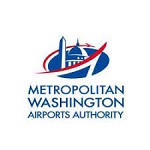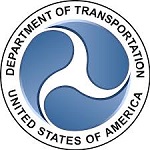Management Audit
Accredited Consulting Service for Dr. Onyekwere Accredited Senior Consultant (ASC)
The Appleton Greene Accredited Consultant Service (ACS) for Management Audit is provided by Dr. Onyekwere and provides clients with four cost-effective and time-effective professional consultant solutions, enabling clients to engage professional support over a sustainable period of time, while being able to manage consultancy costs within a clearly defined monthly budget. All service contracts are for a fixed period of 12 months and are renewable annually by mutual agreement. Services can be upgraded at any time, subject to individual client requirements and consulting service availability. If you would like to place an order for the Appleton Greene Management Audit service, please click on either the Bronze, Silver, Gold, or Platinum service boxes below in order to access the respective application forms. If you have any questions or would like further information about this service, please CLICK HERE. A detailed information guide for this service is provided below and you can access this guide by scrolling down and clicking on the tabs beneath the service order application forms.
Bronze Client Service
Monthly cost: USD $1,500.00
Time limit: 5 hours per month
Contract period: 12 months
SERVICE FEATURES
Bronze service includes:
01. Email support
02. Telephone support
03. Questions & answers
04. Professional advice
05. Communication management
To apply – CLICK HERE

Silver Client Service
Monthly cost: USD $3,000.00
Time limit: 10 hours per month
Contract period: 12 months
SERVICE FEATURES
Bronze service plus
01. Research analysis
02. Management analysis
03. Performance analysis
04. Business process analysis
05. Training analysis
To apply – CLICK HERE
Gold Client Service
Monthly cost: USD $4,500.00
Time limit: 15 hours per month
Contract period: 12 months
SERVICE FEATURES
Bronze/Silver service plus
01. Management interviews
02. Evaluation and assessment
03. Performance improvement
04. Business process improvement
05. Management training
To apply – CLICK HERE
Consultant Profile
Dr. Onyekwere is an approved Senior Consultant at Appleton Greene and he has experience in finance, management and globalization. He has achieved a Ph.D. in Applied Management and Decision Sciences, a Master of Science in Business Economics and a Bachelor of Science in Business Administration. He has industry experience within the following sectors: Banking & Financial Services; Insurance; Aviation; Government and Transport. He has had commercial experience within the following countries: United States of America; Nigeria and Ghana, or more specifically within the following cities: Baltimore MD; Washington DC; Abuja; Lagos and Accra. His personal achievements include: completed management audit implemented restructuring; streamlined processes transportation project teams; facilitated seven balanced transportation budgets; managed capital budget allocation programs and compiled constrained long range program. His service skills incorporate: budget development; project management; proposal writing; capital programing and program management.
To request further information about Dr. Onyekwere through Appleton Greene, please CLICK HERE
Executive Summary
Management Audit
The issue of management compensation may not always depend on financial results attained by a management team especially in post-merger evaluations but on the assessment of competencies and capabilities of a company’s management to carry out corporate objectives. This task usually is reserved for Board Compensation Committee. A company’s Board of Directors does not have formal management audit committee to perform this function using qualitative intangible elements to assess efficiency, control and profitability, for example, measuring the effort required to integrate an acquisition. Domestic and International companies employ the services of independent professional consultants because they can help ascertain the capacity of the management team to align shareholder interest to their own compensation, maintain good relations with employees and uphold the firm’s reputation and standards.
This service is multi-departmental and depending on scope of the audit uses a unique stakeholder management approach, which effectively assess the performance of individual executives using quantitative information such as organic sales, EBIT margins, segment margins, operating cash flow, and intangible elements such as effort put into the integration following an acquisition.
Service Methodology
The service involves the review of managerial aspects such as organizational objective, policies, procedures, structure, control and system in order to check efficiency or the performance of the management over the activities of the company segmented by their operating units such finance, marketing and IT. Unlike financial audit, management audit mainly examine non-financial data to provide a clue as to the efficiency of management. Depending on the scope of work, a management audit could take weeks and months to complete. The outcome of a completed management audit would resemble a report card, with high marks and low marks. The high marks would be assigned to areas where management have excelled in performance. Low marks would go to areas where there is need for improvement. Components graded can include managerial style, effectiveness and suitability of controls, procedures and methods. Answers provided through this audit would help the Board answer the following questions: Organizational structure? Are there clear lines of reporting or is there confusion?; Policies and procedures of the finance group, are they always in compliance?; Current risk management measures, how effective are they?; Management relations with employees, in what state are they?; The annual budget; how is put together?; The company’s IT System; what is the life cycle for updates?; Relationship to shareholders; is the management group responsive to shareholders?; Workforce recruitment and retention; are there training programs to keep skills current among employees?; Good corporate citizen; is management doing its job to maintain this corporate objective?; Strategic focus: is management guiding the company to meets quarterly and yearly financial targets.
Service Options
Companies can elect whether they just require Appleton Greene for advice and support with the Bronze Client Service, for research and performance analysis with the Silver Client Service, for facilitating departmental workshops with the Gold Client Service, or for complete process planning, development, implementation, management and review, with the Platinum Client Service. Ultimately, there is a service to suit every situation and every budget and clients can elect to either upgrade or downgrade from one service to another as and when required, providing complete flexibility in order to ensure that the right level of support is available over a sustainable period of time, enabling the organization to compensate for any prescriptive or emergent changes relating to: Customer Service; E-business; Finance; Globalization; Human Resources; Information Technology; Legal; Management; Marketing; or Production.
Service Mission
Dr. Onyekwere is a well-rounded, articulate and seasoned professional, a thought leader whose ideas are sought after by individuals, communities and corporate bodies. His out of the box thinking helped catalyze solid outcome witnessed in multiple organizational transformations. As Senior Budget Analyst government operations, Dr. Onyekwere was appointed Special Projects Manager and tasked with the Management Audit of Design Engineering and Construction Administration (DECA) at DC Public Works Department. DECA as an operating unit was under-performing its objectives; deficient in closing transportation Infrastructure contracts issued by the Department under the Federal Highway Aid Program. After six months of study, a Government White Paper was submitted. Dr Onyekwere recommended streamlining the project management process from design to close under one management team. Eight project teams was formed and in the first year $300 million worth of Infrastructure projects was obligated.
Service Objectives

- Management Objectives
An assessment of a company’s management objectives is the first in the logical step by step format to be employed by the audit team. The team must first understand the objectives for which the entity was set up. Information about management objectives will be contained in the company’s registration documents and other leadership publications archived as part of an organizations process documents. As a first step, it precedes the interview of key managers, after which the scope of the audit is determined. The breath of management objectives would usually extent to recent, present and future operations and covers external issues as well as internal concerns. A thorough understanding and knowledge of management objectives will provide the audit team with the initial road map from where they can navigate. - Management Strategy
In this service objective, management’s plan or method for achieving the objectives reviewed in service objective 1, within the short term and over a long period of time: the skill of making or carrying out plans to achieve this objective is examined for completeness. It is through this review that the strengths, weaknesses, and threats to the organization is identified and cataloged. Strengths identified in this service objective will be specific, measurable and sustainable capable of duplication and if possible improved upon; weaknesses of the organization will be identified for redress and correction; while threats identified will be reviewed and solutions proffered to overcome or develop an effective hedge. - Operating Structure
As have been documented in recent time’s rapid technological change has been associated with frequent changes in how businesses are modeled and run. The service objective associated with the review of operating structure have changing times in mind. The relevancy of the current operating structure measured against rapid technological transformation is mission critical. In profit motivated firms this review becomes imperative particularly with shifting markets, demographic changes and emerging technologies including Artificial Intelligence and autonomous transportation systems. As in other service objectives described earlier, operating structure will be reviewed and scored on a scale developed to chart areas in need of improvement and those that need strengthening as well those that will be discarded due to obsolescence in the recommendation section of the audit. - Budgeting Process
Funding the business operations is one of the mission critical elements in business operations yet, finding the right skills to operationalize a budgeting process has become a major challenge for corporations, governments and non-profits. As with technological changes, automation in the budget process using software designed to replace humans is not far from reality. Whatever the direction of technological advance takes, one cannot foresee a time that funding operating and capital cost for businesses, governments and non-profits will be obsolete. The skills needed may need to be reallocated to writing the software, which may be company specific or customized. As it is, this service objective will deal with timing related to budget development, methods employed, execution and reporting. In government budgets are fluid due to prevailing economy and tax revenues. In the corporate environment, it may be driven by markets, while in non-profits, budget may be drive by donor or sponsorship behavior. Whichever the case, what remains critical is organizational priority. During my days as senior budget officer, I would fund the priority of government and develop justification packages for the other no priority areas. - Human Resources
It is acknowledged worldwide that human resources are the best asset that a company or organization possesses. While it is true in a global sense, it also the most expensive asset in most organizations. Statistically, seventy percent or more of organizational budgets or cost is tied to human resource costs. This service objective will focus on reviewing what is current, the future needs, the supply chain for talent, direction of technological advancement including artificial intelligence, while being mindful of the balance that needs to be maintained between human resources and machine resources.
Achievements
District Department of Transportation (DDOT)
As Special Projects Manager, I conducted and completed the Management Audit of Design Engineering and Construction Administration (DECA) at DC Public Works Department. DECA was under-performing in its core mission and deficient in closing transportation Infrastructure contracts issued by the Department under the Federal Highway Aid Program .Recommendations contained in government white paper, which called for streamlining the project management process from design to close under one management team was accepted and implemented and led to the formation of Infrastructure Projects Management Administration (IPMA), an operating arm of DDOT. Eight project teams was formed and in the first year $300 m of Infrastructure projects was obligated for construction.
Mass Transit Administration (DDOT)
As Resource Allocation Officer, I achieved seven years of balanced budgets, in funding the operating and capital cost of Washington Metropolitan Transit Authority (WMATA), a Tri State Agency responsible for Heavy Rail, Bus and Para-Transit services in DC, Virginia and Maryland for the District of Columbia Government from 2003 to 2009.
Department of Public Works (DDOT)
In 2003, five hundred (500) calls was coming in daily from users who did not get value for money deposited in parking meters deployed on city streets. In addition, there was a seven year $12 million dollar Contract with Lockheed Martin IMS Division. Under terms of the contract, the parking meters will revert to District Government ownership at the end of seven years. It did not make sense for the District to Inherit worthless meters at the end of the contract term. What made sense was to sanitize the meters by fixing the bugs, and as reward, purchase more meters and grow meter revenue to $20 million per year. Working with a team of Engineers from Duncan Industries, Dr. Onyekwere was able isolate the problem to internal working mechanisms of the meter susceptible to moisture and plastic elements affected by coin drops. Once the fix was provided, capital provisions were made in the 2004 Fiscal year budget for one thousand new parking meters with a projected revenue of $20m.
Office of the Chief Financial Officer (DDOT)
Conducted and completed the Fixed Assets Inventory that was instrumental in the District of Columbia achieving a clean audit and establishing that It had control of assets purchased with public funds as required by the Financial Control Law established by US Congress under the DC Oversight Law in 1997. Received written commendation from the Comptroller.
Traffic Safety Administration (TSA)
Restructured the $124 million Traffic Safety Administration. Traffic Safety was responsible for installation and maintenance of Street Lights on all streets and is a federally funded program at one hundred percent. Most of the installation was handled through private contractors, although the government maintained control post installation. Having completed the creation of eight infrastructure project teams at IPMA, all that was required was to carve up the traffic lights by city location and embed them into the existing project teams as additional team member component.
More detailed achievements, references and testimonials are confidentially available to clients upon request.
Industries
This service is primarily available to the following industry sectors:
Government
Major functions of government in a rapidly developing and urbanizing cities of the world include development and delivery of public goods for a young and teeming population that is changing with the rate of technological penetration and market transformation. In this rapidly evolving environment better ways of service delivery will be determined by value innovation. The ability to meet regulatory and environmental demands can only be assessed by engagement of consultancy services in an era where budgets are finite and dwindling resources. Provision of public goods such as transportation alternatives in growing cities require assessment of current organizational capacity, technological requirements and cost to delivery including sustainability. The assessment of competencies and capabilities present in a government agency responsible for delivery of public goods such education, public transit, transportation alternatives requires precise knowledge of ability to carry out planned objectives that meet public expectations. Consultant service engagement offers flexibility in meeting challenges posed by program completion deadlines where the expectation of decision makers is to determine the level of service that matches available budgetary resources.
 Non-Profits & Charities
Non-Profits & Charities
As with a government agency responsible for the provision public goods, Non-profits and Charities serve the special needs of a population. For example the Red Cross maintain blood banks throughout an area defined by geographical boundary. To be effective in delivering this service, it must monitor capacity levels for both incoming and out-going blood by type and availability. Management insight and ability to forecast demand for blood becomes critical to mission accomplishment. Regulatory compliance describes the goal that organizations aspire to achieve in their efforts to ensure that they are aware of and take steps to comply with relevant laws and regulations. Conforming to the myriad of ever changing rules, policies, standards and laws can be daunting in an environment where budgets are limited. Not only is it important to keep current on all the regulations impacting your organization, it is important to maintain a working knowledge of the various new technologies and options that are available to meet compliance requirements Consultancy services engagement could become useful to aid management in assessing organizational capacity through a thorough SWOT analysis, reduce unnecessary duplication of resources and allowing management to focus on other mission critical elements such as staffing and strategy.
State Owned Enterprises
State owned enterprises (para-statals) abound in many emerging market and developed countries today delivering services in transportation, water, social services and other public goods areas of the economy. The thought of government owned commercial companies competing side by side privately funded commercial companies appear paradoxical and is a source of trade friction between say China and its trading partners. To ameliorate the myriad of trade disputes in rapidly growing markets, reforms are necessary to align these entities with market orientation. A well-defined management audit can assist reforms by identifying clusters or parts of the company with greater enterprise value that help attract investors.
 Transportation
Transportation
Capital programming as it relates to transportation infrastructure construction and maintenance is an area that is not taken seriously in the emerging markets countries in Sub Saharan Africa. A well-developed capital programming function becomes the basis for a focused resource allocation and justification package to systematically design and award road construction, rehabilitation and maintenance contracts. When combined with pavement condition indexing, roads requiring attention can be marked and funded in the year that funding will be available. A six year capital improvement plan (CIP) with the first year as the current budget year with year two up to year six representing the out years was the functional model at DDOT. The Constrained Long Range Plan (CLRP) is a variant of the six year CIP but stretched to year thirty. I am inclined to develop a practice in Capital Programming as means of promoting accountability and project management lacking in a number of emerging market countries.
Insurance
Risk management remains a growth market driven primarily by automation, AI and smart phone technology. With automation and artificial intelligence, the issue of liability and laws related to it may have to be addressed by state legislatures, who control insurance in the fifty states and the District of Columbia. Given an environment where it is mandatory for motorist to carry at a minimum, liability insurance, the laws in emerging markets of Sub Saharan African countries can benefit from best practices if they desire to truly make progress.
Locations
This service is primarily available within the following locations:
Washington DC
In its position as the seat of the Federal Government of the US Washington DC is clearly at the heart of US legal and policy formulation. Within the district are multiple stake holders (State, Defense, the military departments, numerous industry leaders, and special interests) and the headquarters of multiple corporations and companies who constantly are interacting and competing for their own, sometimes unique, perspectives to be heard and adopted. Washington DC has 15 Fortune 500 companies including: No. 13 Fannie Mae; No. 32 Freddie Mac; No. 59 Lockheed Martin Corp.; No. 99 General Dynamics Corp.; No. 122 Northrop Grumman Corp.; No. 124 Capital One Financial Corp.; No. 174 The AES Corp.; No. 185 Computer Sciences Corp.; No. 219 Marriott International Inc.; No. 289 Hilton Worldwide Holdings Inc.; No. 443 Booz Allen Hamilton Holding Corp.; No. 460 Discovery Communications Inc.; No. 477 Host Hotels & Resorts Inc.; No. 481 Gannett Co. Inc.; and No. 495 NII Holdings Inc. Understanding the intricacies of the Washington DC environment and leading large organizations in that environment requires a broad strategic perspective as well as the ability to explain to various leaders and their staffs the merits of a particular proposal in ways that allow them to advance their own agendas. Succeeding in the Washington DC environment requires thoughtful, patient, focused, aggressive and dependable leadership skills up and down the organization.
Philadelphia PA
Philadelphia is the largest city in the U.S. state and Commonwealth of Pennsylvania, and the sixth-most populous U.S. city, with a 2017 census-estimated population of 1,580,863. Philadelphia is also the economic and cultural anchor of the greater Delaware Valley, located along the lower Delaware and Schuylkill Rivers, within the Northeast megalopolis. The Delaware Valley’s population of 7.2 million ranks it as the eighth-largest combined statistical area in the United States. Philadelphia was one of the nation’s capitals during the revolution, and served as temporary U.S. capital while Washington, D.C., was under construction. According to the Bureau of Economic Analysis, the Philadelphia area had a gross domestic product of US$431 billion in 2016, the eighth-largest metropolitan economy in the United States. Philadelphia is the center of economic activity in Pennsylvania and is home to five Fortune 1000 companies. The city is known for its arts, culture, and colonial history which attracted 42 million domestic tourists in 2016 who spent US$6.8 billion, generating an estimated $11 billion in total economic impact in the city and surrounding four counties of Pennsylvania. Philadelphia has also emerged as a biotechnology hub. Philadelphia is the birthplace of the United States Marine Corps, and is also the home of many U.S. firsts, including the first library (1731), hospital (1751), medical school (1765), national capital (1774), stock exchange (1790), zoo (1874), and business school (1881). Philadelphia contains 67 National Historic Landmarks and the World Heritage Site of Independence Hall.
Abuja NG
Abuja is the capital city of Nigeria located in the center of the country within the Federal Capital Territory (FCT). It is a planned city and was built mainly in the 1980s, replacing the country’s most populous city of Lagos as the capital on 12 December 1991. Abuja’s geography is defined by Aso Rock, a 400-metre (1,300 feet) monolith left by water erosion. The Presidential Complex, National Assembly, Supreme Court and much of the city extend to the south of the rock. Zuma Rock, a 792-metre (2,598 feet) monolith, lies just north of the city on the expressway to Kaduna. At the 2006 census, the city of Abuja had a population of 776,298, making it one of the ten most populous cities in Nigeria. According to the United Nations, Abuja grew by 139.7% between 2000 and 2010, making it the fastest growing city in the world. As of 2015, the city is experiencing an annual growth of at least 35%, retaining its position as the fastest-growing city on the African continent and one of the fastest-growing in the world. As at 2016, the metropolitan area of Abuja is estimated at six million persons, placing it behind only Lagos, as the most populous metro area in Nigeria. Abuja is Nigeria’s administrative and political center. It is also a key capital on the African continent due to Nigeria’s geo-political influence in regional affairs. Abuja is also a conference center and hosts various meetings annually, such as the 2003 Commonwealth Heads of Government meeting and the 2014 World Economic Forum (Africa) meetings. Abuja is the headquarters of the Economic Community of West African States (ECOWAS) and the regional headquarters of OPEC. Abuja and the FCT have experienced huge population growth; it has been reported that some areas around Abuja have been growing at 20% to 30% per year. Squatter settlements and towns have spread rapidly in and outside the city limits.
Lagos NG
Lagos is a city in the Nigerian state of Lagos. The city, with its adjoining conurbation, is the most populous in Nigeria, and the African continent. It is one of the fastest growing cities in the world. Lagos is a major financial center in Africa; the megacity has the highest GDP and also houses one of the largest and busiest ports on the continent. Lagos initially emerged as a port city that originated on a collection of islands, which are contained in the present day Local Government Areas (LGAs) of Lagos Island, Eti-Osa, Amuwo-Odofin and Apapa; the islands are separated by creeks, fringing the southwest mouth of Lagos Lagoon, while protected from the Atlantic Ocean by barrier islands and long sand spits such as Bar Beach, which stretch up to 100 km (60 mi) east and west of the mouth. Lagos, the capital of Nigeria since its amalgamation in 1914, went on to become the capital of Lagos State after its creation. However, the state capital was later moved to Ikeja in 1976, and the federal capital moved to Abuja in 1991. The exact population of Metropolitan Lagos is disputed. In the 2006 federal census data, the conurbation had a population of about 8 million people. However, the figure was disputed by the Lagos State Government, which later released its own population data, putting the population of Lagos Metropolitan Area at approximately 16 million. As at 2015, unofficial figures put the population of Greater Metropolitan Lagos at approximately 21 million. The city of Lagos is a major economic focal point in Nigeria, generating around 10% of the country’s GDP. Most commercial and financial business is carried out in the central business district situated on the island. This is also where most of the country’s commercial banks, financial institutions and major corporations are headquartered. Lagos is also the major Information Communications and Telecommunications (ICT) hub of West Africa and potentially, the biggest ICT market in the continent. Lagos is developing a 24-hour economy and has also been ranked as one of the most expensive cities in the world. The Port of Lagos is Nigeria’s leading port and one of the largest and busiest in Africa. It is administered by the Nigerian Ports Authority and it is split into three main sections: Lagos port, in the main channel next to Lagos Island, Apapa Port and Tin Can Port, both located in Badagry Creek, which flows into Lagos Harbor from the west The port features a railhead and has seen growing amounts of crude oil exported, with export figures rising between 1997 and 2000. Oil and petroleum products provide 14% of GDP and 90% of foreign exchange earnings in Nigeria as a whole.
Singapore SG
One of the four Asian Tigers, Singapore is a global commerce, finance and transport hub. Its standings include: “easiest place to do business” (World Bank) for ten consecutive years, most “technology-ready” nation (WEF), top “International meetings city” (UIA), city with “best investment potential” (BERI), 2nd-most competitive country (WEF), 3rd-largest foreign exchange center, 4th-largest financial center, 3rd-largest oil refining and trading center and one of the top two busiest container ports since the 1990s. Singapore’s best known global brands include Singapore Airlines and Changi Airport, both amongst the most-awarded in their industry; SIA is also rated by Fortune surveys as Asia’s “most admired company”. For the past decade, it has been the only Asian country with the top AAA sovereign rating from all major credit rating agencies, including S&P, Moody’s and Fitch. The Singaporean economy is known as one of the freest, most innovative, most competitive, most dynamic, and most business-friendly. The 2015 Index of Economic Freedom ranks Singapore as the second freest economy in the world. According to the Corruption Perceptions Index, Singapore is consistently ranked as one of the least corrupt countries in the world, along with New Zealand and the Scandinavian countries. Singapore attracts a large amount of foreign investment as a result of its location, skilled workforce, low tax rates, advanced infrastructure and zero-tolerance against corruption. There are more than 7,000 multinational corporations from the United States, Japan, and Europe in Singapore. There are also approximately 1,500 companies from China and a similar number from India. Foreign firms are found in almost all sectors of the country’s economy. Singapore is also the second-largest foreign investor in India. Singapore is considered a barometer of global economic health, especially within Asia, owing to its high dependence on external trade. Its foreign trade and capital flows is 407.9% of its GDP, making it the most trade dependent country in the world. It is the 14th largest exporter and the 15th largest importer in the world. The cosmopolitan nation is home to 5.5 million residents, 38% of whom are permanent residents and other foreign nationals. Its cultural diversity is reflected in its extensive “hawker” cuisine and major ethnic festivals—Chinese, Malay, Indian, Western—which are all national holidays. In 2015, Lonely Planet and The New York Times listed Singapore as their top and 6th best world destination to visit respectively. The nation’s core principles are meritocracy, multiculturalism and secularism. It is noted for its effective, pragmatic and incorrupt governance and civil service, which together with its rapid development policies, is widely cited as the “Singapore model”. It is ranked as Asia’s most influential city and 4th in the world by Forbes, making it a fertile ground for the application and implementation of value innovation processes.
Clients
This service’s current clients or employers include:
DC Department of Transportation (DDOT)
On May 21, 2017, the District Department of Transportation (DDOT) reached 15 years as an independent agency, a momentous milestone. Once upon a time, DDOT existed as an arm of the DC Department of Public Works. Mission: Enhance the quality of life for District residents and visitors by ensuring that people, goods, and information move efficiently and safely, with minimal adverse impact on residents and the environment. Vision: The District Department of Transportation (DDOT) is committed to achieving an exceptional quality of life in the nation’s capital through more sustainable travel practices, safer streets and outstanding access to goods and services. Central to this vision is improving energy efficiency and modern mobility by providing next generation alternatives to single occupancy driving in the city. Vision Zero is a Mayor Muriel Bowser initiative, which states that by the year 2024, Washington, DC, will reach zero fatalities and serious injuries to travelers of our transportation system, through more effective use of data, education, enforcement, and engineering. Vision Zero aims to improve pedestrian and bicycle transportation safety by showcasing effective local actions, empowering local leaders to take action, and promoting partnerships to advance pedestrian and bicycle safety. MoveDC is a collaborative effort led by DDOT to develop a bold and implementation-focused vision for the District of Columbia’s transportation future. Read more on the two-year action plan. DDOT Compendium: The DDOT Compendium is a tool that provides comprehensive information about DDOT’s policies, procedures, and services in an online, searchable format. The Compendium contains a variety of documents and reference materials—ranging from regulations, federal legislation and transportation studies, to FAQs—organized by topic into summary pages that provide links to related documents and references. Access the compendium here. DC Streetcar will facilitate travel for District residents, workers and visitors by complementing existing transit options, and by creating neighborhood connections where they currently do not exist. DC Transportation Online Permitting System (d.TOPS) – This online system enables home owners, tenants, and businesses alike to apply for the specific type of public space occupancy, construction, excavation, annual or rental permit required for use of the public space within the District of Columbia.
DC Department of Transportation (DDOT) – Click Here
Washington Metropolitan Area Transit Authority (WMATA)
The Washington Metro, known colloquially as Metro and branded Metrorail, is the heavy rail rapid transit system serving the Washington metropolitan area in the United States. It is administered by the Washington Metropolitan Area Transit Authority (WMATA), which also operates Metrobus service under the Metro name. Besides the District of Columbia, Metro serves several jurisdictions in the states of Maryland and Virginia. In Maryland, Metro provides service to Montgomery and Prince George’s counties; in Virginia, to Arlington and Fairfax counties and the independent city of Alexandria. Combined with its ridership in the independent Virginia cities of Falls Church and Fairfax, the Metro service area is largely coextensive with the inner ring of the Washington metropolitan area. The system is currently being expanded to reach Dulles International Airport and Loudoun County, Virginia. It operates mostly as a subway in the District itself, while most of the suburban tracks are at surface level or elevated. Opened in 1976, the network now includes six lines, 91 stations, and 117 miles (188 km) of route. Due to subway track depths, Metro’s Wheaton station has the longest single-tier escalator in the Western Hemisphere, spanning 230 feet (70 m). Metro is the third-busiest rapid transit system in the United States in number of passenger trips, after the New York City Subway and Chicago “L”. There were 179.7 million trips on Metro in fiscal year 2016.n June 2008, Metro set a monthly ridership record with 19,729,641 trips, or 798,456 per weekday. Fares vary based on the distance traveled, the time of day, and the type of card used by the passenger. Riders enter and exit the system using a proximity card called SmarTrip.
Washington Metropolitan Area Transit Authority (WMATA) – Click Here
Metropolitan Washington Airport Authority (MWAA)
The Metropolitan Washington Airports Authority (MWAA) is an independent airport authority, created with the consent of the United States Congress to oversee management, operations, and capital development of the two major airports serving the capital: Ronald Reagan Washington National Airport and Washington Dulles International Airport. The Airports Authority was established to operate as a financially self-sustaining entity with the mission to manage and enhance Washington, D.C.’s two-airport system. The authority leases the airports from the United States Department of Transportation. The U.S. government originally built the airports and continues to own the underlying airport property except for property acquired by MWAA subsequent to the lease. The daily operation of the airports, their central administration, their police and fire departments and their payroll are not funded by tax dollars. Operating costs are paid through aircraft landing fees, rents for use of terminals and other facilities and revenues from concessions and parking. The Airports Authority is responsible for capital improvements at the airports, which are funded in part by passenger facility charges collected through airline tickets, Federal Airport Improvement Program funds and the proceeds of bonds issued by the Airports Authority. In 2008, the Airports Authority’s responsibilities were expanded to include the operation of the Dulles Toll Road and management of the construction project to extend the metropolitan Washington region’s Metrorail mass transit system for 23 miles from the existing West Falls Church station in Virginia to Dulles International Airport and beyond into Loudoun County, Virginia. Tolls collected on the Dulles Toll Road are used to operate and improve the Toll Road and fund a portion of the construction of the Metrorail extension project. Additional funding for the Metrorail project is supplied by federal grants and loans and by contributions from the Commonwealth of Virginia and Loudoun and Fairfax counties in Virginia. The authority’s headquarters is located less than a mile from Reagan National Airport in the Crystal City neighborhood of Arlington County, Virginia. A third major airport in the Washington region, Baltimore-Washington International Thurgood Marshall Airport is located 9 miles south of downtown Baltimore. Marshall Airport is not operated by MWAA but is owned by the State of Maryland and operated through the Maryland Aviation Administration, which purchased then “Friendship Airport” from the City of Baltimore in 1972.
Federal Transit Administration (FTA)
The Federal Transit Administration (FTA) provides financial and technical assistance to local public transit systems, including buses, subways, light rail, commuter rail, trolleys and ferries. FTA also oversees safety measures and helps develop next-generation technology research. Transit services supported by FTA span many groups and provide wide-ranging benefits. Since 1964, FTA has partnered with state and local governments to create and enhance public transportation systems, investing more than $12 billion annually to support and expand public rail, bus, trolley, ferry and other transit services. That investment has helped modernize public transportation and extended service into small cities and rural communities that previously lacked transit options. An agency within the U.S. Department of Transportation (DOT), FTA is headed by an administrator appointed by the President of the United States. FTA is one of DOT’s 10 modes of transportation and is run by a headquarters in Washington, D.C. as well as 10 regional offices that assist transit agencies in all states and U.S. territories. Over its five decades, FTA has overseen the transformation of public transportation in America from legacy subways confined to the country’s biggest cities – New York, Boston, Philadelphia and Chicago – to a diverse set of transit systems in dozens of cities and towns. By supporting the development and maintenance of light rail, bus rapid transit and expanded bus systems in addition to subways and commuter rail, FTA has provided alternative transportation options for people across America. Its work to create and expand urban systems and extend service into small cities and rural communities that previously lacked transit has made public transportation a viable option throughout the United States. Transit’s share of the gas tax increased to 2.86 cents in the 1990s, a decade that also saw an emphasis on increased funds for maintenance of rail cars, vehicles and tracks. FTA now invests more than $12 billion annually to support and expand public transit.
Federal Transit Administration (FTA) – Click Here
United States Department of Transportation (USDOT)
Their mission is to ensure that our nation has the safest, most efficient and modern transportation system in the world; that improves the quality of life for all American people and communities, from rural to urban, and increases the productivity and competitiveness of American workers and businesses. Statutory Authority – The Department of Transportation was established by an act of Congress on October 15, 1966. The Department’s first official day of operation was April 1, 1967. The Operating Administrations include: FAA-Aviation; FHWA- Highways, Roads and Bridges; FMCSA- Motor Carriers, Coaches; FRA-Railroad; FTA- Public Transit; MARAD- Maritime; NHTSA-Transportation Safety; PHMSA -Pipelines and Hazardous Materials; SLSDC: St Lawrence Seaway and VOLPE: Research. Areas of focus include: automobiles; aviation; bicycles and pedestrians; public transit; pipelines and hazmat; railroads; trucking and motor coaches; maritime and waterways; roadways and bridges. Our activities include: regulations, research and technology, transportation statistics, legislation, transit benefit policy, policies, rights, legal, and civil rights.
United States Department of Transportation (USDOT)
– Click Here
Service Benefits
Management
- Management efficiency
- Productivity efficiency
- Employee loyalty
- Smart allocation
- Service responsiveness
- Greater innovation
- Market responsiveness
- Strategic orientation
- Competitive advantage
- Profitable growth
Finance
- Improved margins
- Improved profitability
- Lower cost
- Customer incentives
- Customer loyalty
- Market growth
- Brand value
- Market share
- Happier employees
- Management stability
Globalization
- Corporate reputation
- Industry recognition
- Brand value
- Profitable growth
- Strategic collaboration
- Diversification
- Global positioning
- Market leadership
- Competitive advantage
- Customer centricity
Bronze Service

Time limit: 5 hours per month
Contract period: 12 months
Bronze service includes:
01. Email support
02. Telephone support
03. Questions & answers
04. Professional advice
05. Communication management
SERVICE DESCRIPTION
The Bronze Client Service (BCS) for Management Audit provides clients with an entry level option and enables client contacts to become personally acquainted with Dr. Onyekwere over a sustainable period of time. We suggest that clients allocate up to a maximum of 5 Key Employees for this service. Your Key Employees can then contact the consultant via email, whenever they feel that they need specific advice or support in relation to the consultant’s specialist subject. The consultant will also be proactive about opening and maintaining communications with your Key Employees. Your Key Employees can list and number any questions that they would like to ask and they will then receive specific answers to each and every query that they may have. Your Key Employees can then retain these communications on file for future reference. General support inquiries will usually receive replies within 48 hours, but please allow a period of up to 10 business days during busy periods. The Bronze Client Service (BCS) enables your Key Employees to get to know their designated Appleton Greene consultant and to benefit from the consultant’s specialist skills, knowledge and experience.
Silver Service

Time limit: 10 hours per month
Contract period: 12 months
Bronze service plus
01. Research analysis
02. Management analysis
03. Performance analysis
04. Business process analysis
05. Training analysis
SERVICE DESCRIPTION
The Silver Client Service (SCS) for Management Audit provides more time for research and development. If you require Dr. Onyekwere to undertake research on your behalf, or on behalf of your Key Employees, then this would understandably require more time and the Silver Client Service (SCS) accommodates this. For example, you may want your consultant to undertake some research into your management, performance, business, or training processes, with a view towards providing an independent analysis and recommendations for improvement. If any research and development, or business analysis is required, then the Silver Client Service (SCS) is for you.
Gold Service

Time limit: 15 hours per month
Contract period: 12 months
Bronze/Silver service plus
01. Management interviews
02. Evaluation and assessment
03. Performance improvement
04. Business process improvement
05. Management training
SERVICE DESCRIPTION
The Gold Client Service (GCS) for Management Audit is intended for more detailed evaluation and assessment, that may require your Key Employees to have monthly meetings or interviews with Dr. Onyekwere. These meetings and interviews can be conducted over the telephone, Skype, or by video conference if required. The consultant can also attend your business premises, an Appleton Greene office, or another mutually beneficial location, but please note that clients are responsible for the costs of any disbursements separately, including travel and accommodation. This service enables you to integrate the specific skills, knowledge and experience of your designated consultant into your Key Employee management team. The Gold Client Service (GCS) can also incorporate training workshops, business presentations and external meetings with customers, suppliers, associations, or any other business-related stakeholders.
Platinum Service

Time limit: 20 hours per month
Contract period: 12 months
Bronze/Silver/Gold service plus
01. Project planning
02. Project development
03. Project implementation
04. Project management
05. Project review
SERVICE DESCRIPTION
The Platinum Client Service (PCS) for Management Audit is our flagship service and will be required if you need Dr. Onyekwere to facilitate the planning, development, implementation, management, or review of a particular project relating to his specialist subject, which would obviously require more time and dedication. This service enables you to reserve up to 12.5% of the consultant’s working month and provides a more hands-on service as and when required. If you need more time than this, then this can always be arranged, subject of course to the consultant’s ongoing availability. The benefit of having an external consultant involved in projects is they provide an independent perspective and are not influenced by internal politics, day-to-day responsibilities, or personal career interest. They provide objectivity, specific knowledge, skills and experience and will be entirely focused upon the tasks at hand. The Platinum Client Service (PCS) will provide your organization with a valuable resource as and when you need it.




























